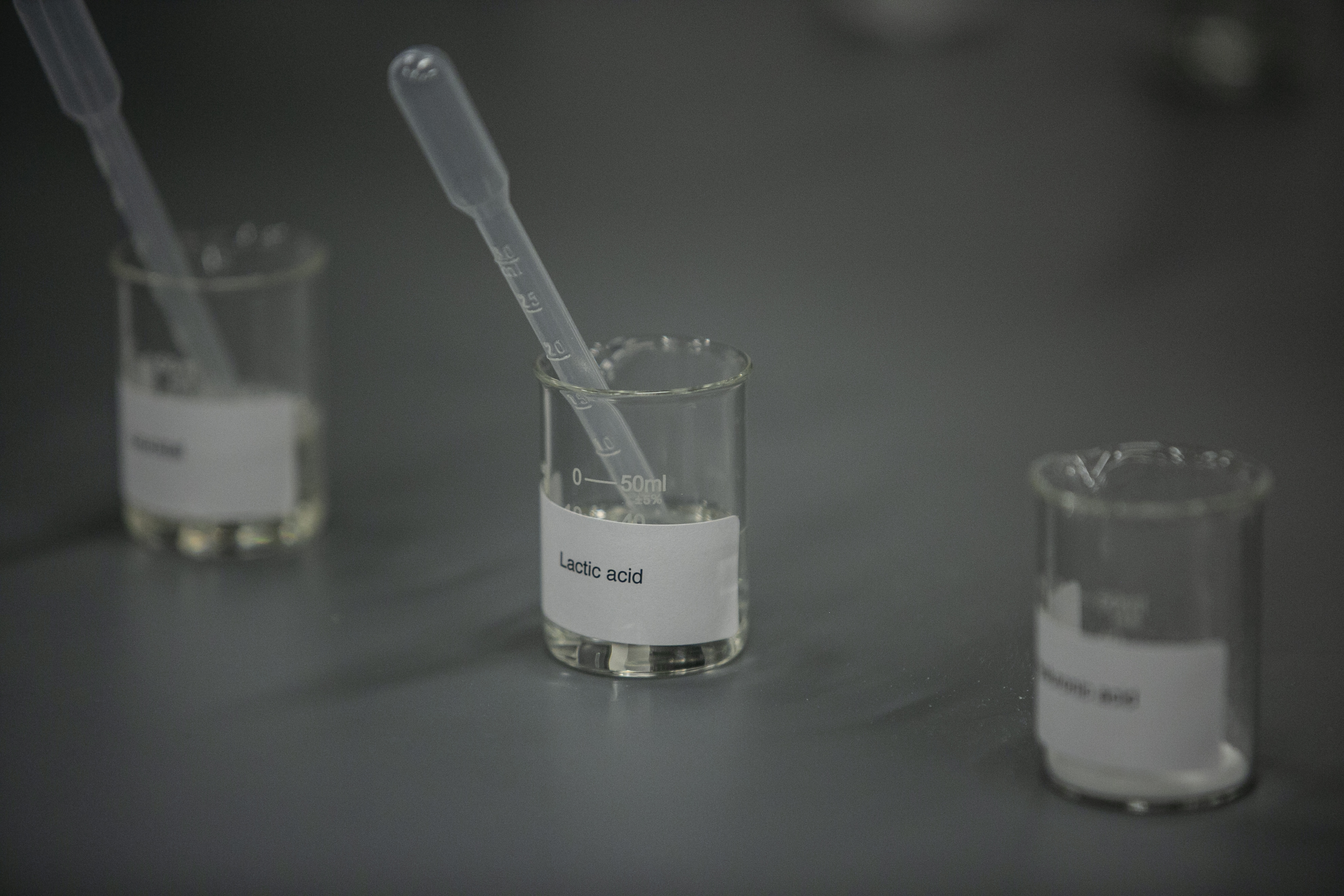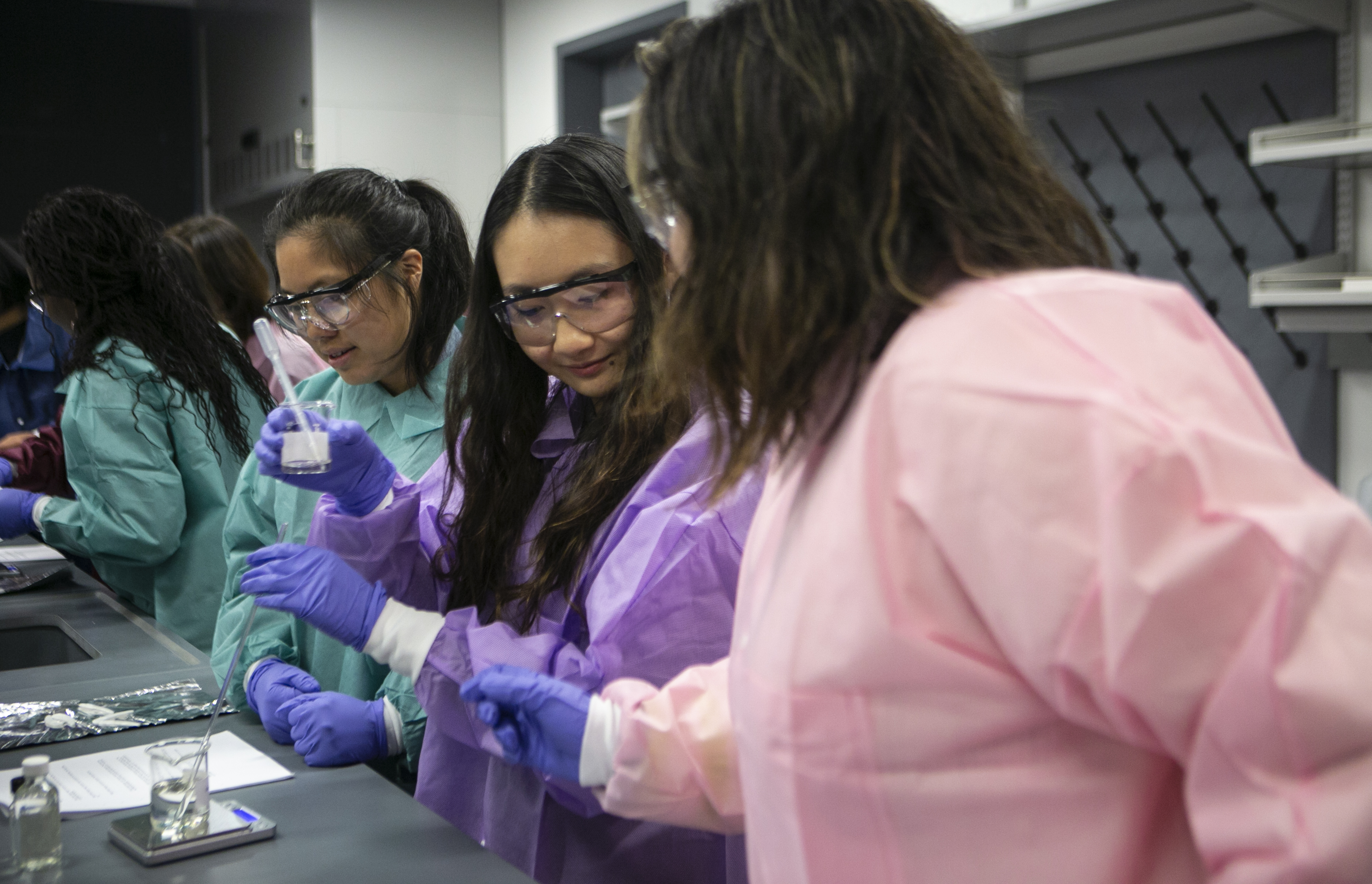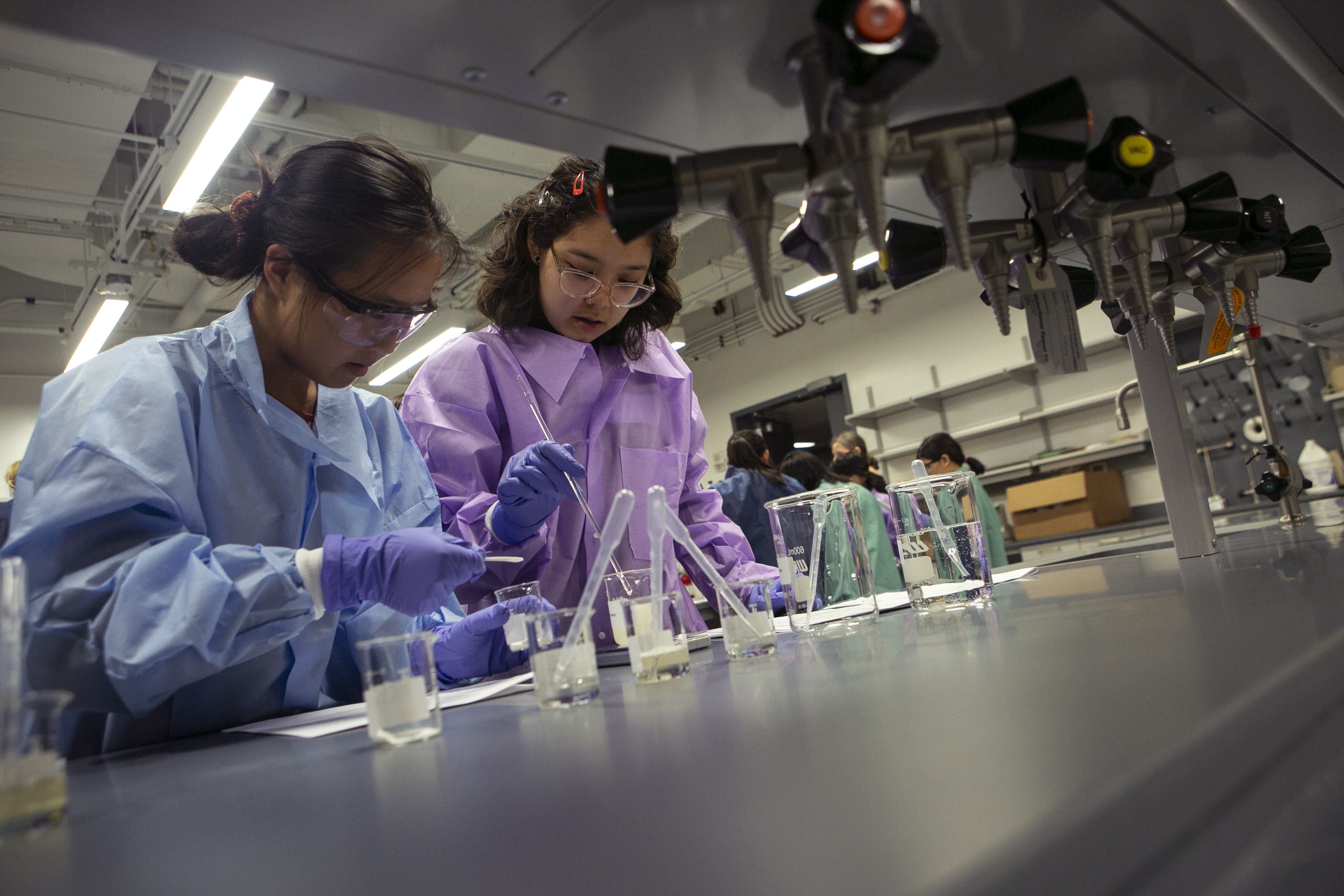Universal Skin Salvation 2.0: Strange Life: Beauty, Race & War
Lewis Center for the Arts, Princeton University
October 14 -19, 2019
What does the beauty, sensorial delight, and multi-million dollar industry of American cosmetics have to do with the science of medicine and the business of war — in particular, U.S. war in Asia?
Few standing in the clean bright spaces of American cosmetic counters today know that the miracle of Retinol-A comes from the devastations of Agent Orange, or that the precious lactic acid used to rejuvenate skin today, found in so many upscale beauty/health products, is organically kin to the racialized “funk” of kimchi, or that the double-lid surgery so often thought to be a symptom of Asian self-hatred has its origins in U.S. military medical advancement.
The Program in American Studies presents the second series of the American Studies Collaboratory on the theme of “Strange Life,” intended to explore the aesthetics, politics, and materiality of alternative forms of ontology and human/nonhuman life. The first module of this series, on “Beauty, Race, and War,” is built around the installation art of Brooklyn-based artist Tiffany Jaeyeon Shin and explores unexpected connections among beauty, race, and U.S. militarization and war-making in Asia.
“Universal Skin Salvation,” explores the porousness of bodily boundaries and the ceaseless movement of living processes, such as fermentation, that echoes the history of U.S. colonialism and connects the billion dollar pharma-cosmetic industry to a history of war and scientific experiments. This installation focuses on the production and commercial uses of lactic acid — a compound found in our muscles but also extracted from animals, food, and synthetic processes and then repackaged and racialized through the burgeoning ideal and industry of so-called K-beauty today — in order to explore entanglements between beauty, colonialism, medicine, food, and racial otherness.
Shin’s installation invites viewers to walk through and test the limits of their skin as a site of experimentation, opening up larger questions about the relationship between beauty, health, science, and how that relationship has blossomed under the shadows of war and colonialism.
Pre-registered participants — or, col(LAB)orators — will come together for a discussion session and “laboratory” where we will explore, critically and hands-on, the making of pharma-cosmetics and the mysteries of beauty at the edge of synthetic life and racialized dreams.
Critical essay:
Col(Lab) 2.0 connects beauty, race, war
![]()
![]()
![]()
![]()
![]() Universal Skin Salvation (Dermis, Lactic Acid, Porcelain, and Vitrification), 2018. Digital poster, 8 x 5 feet.
Universal Skin Salvation (Dermis, Lactic Acid, Porcelain, and Vitrification), 2018. Digital poster, 8 x 5 feet.
![]() A hands-on workshop at Princeton University with students, faculty members, professors, and researchers as a part of their American Studies Program, Col(LAB): Strange Life: Beauty, Race, & War.
A hands-on workshop at Princeton University with students, faculty members, professors, and researchers as a part of their American Studies Program, Col(LAB): Strange Life: Beauty, Race, & War.
![]()
![]()
![]()
![]()


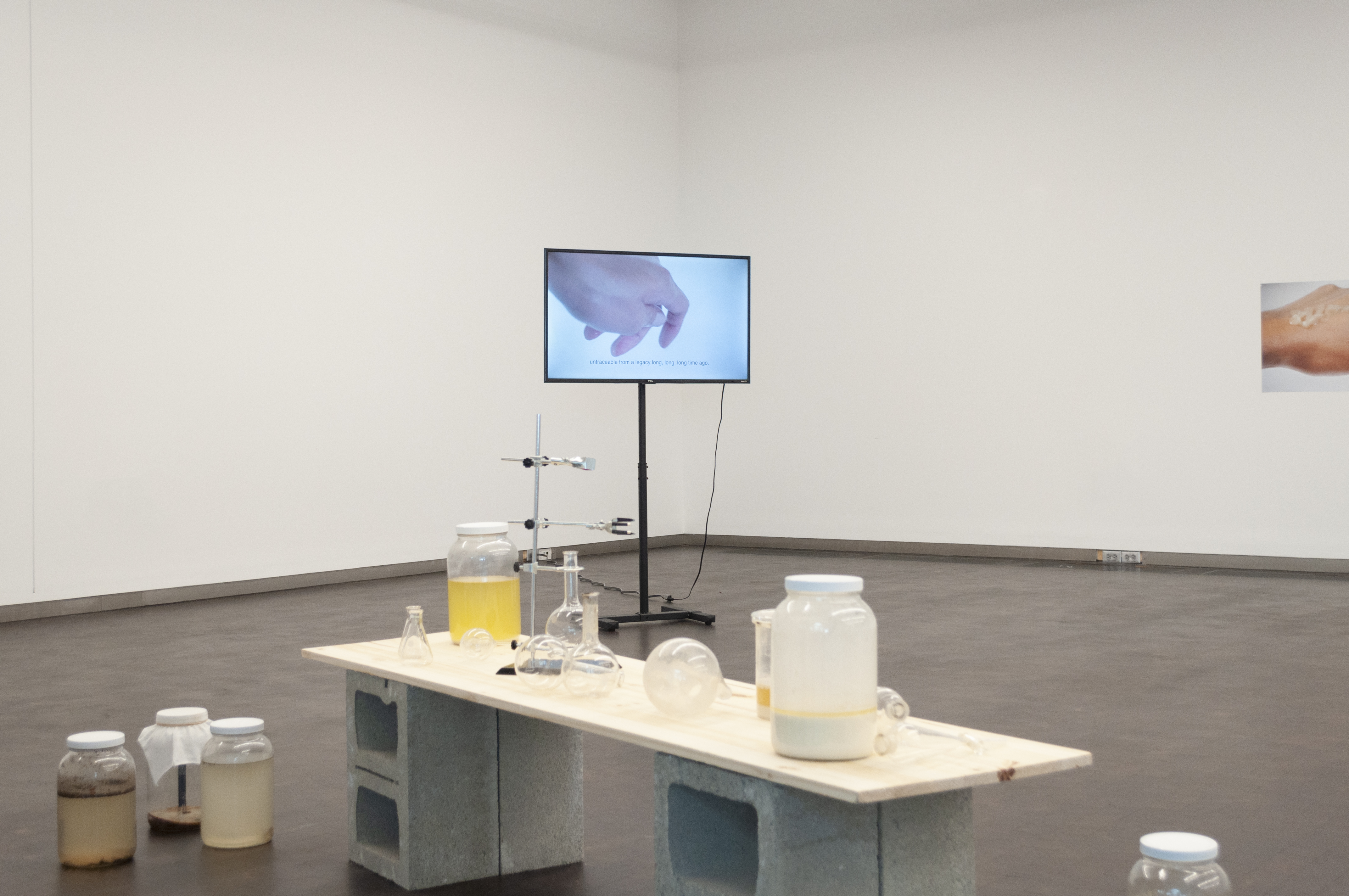
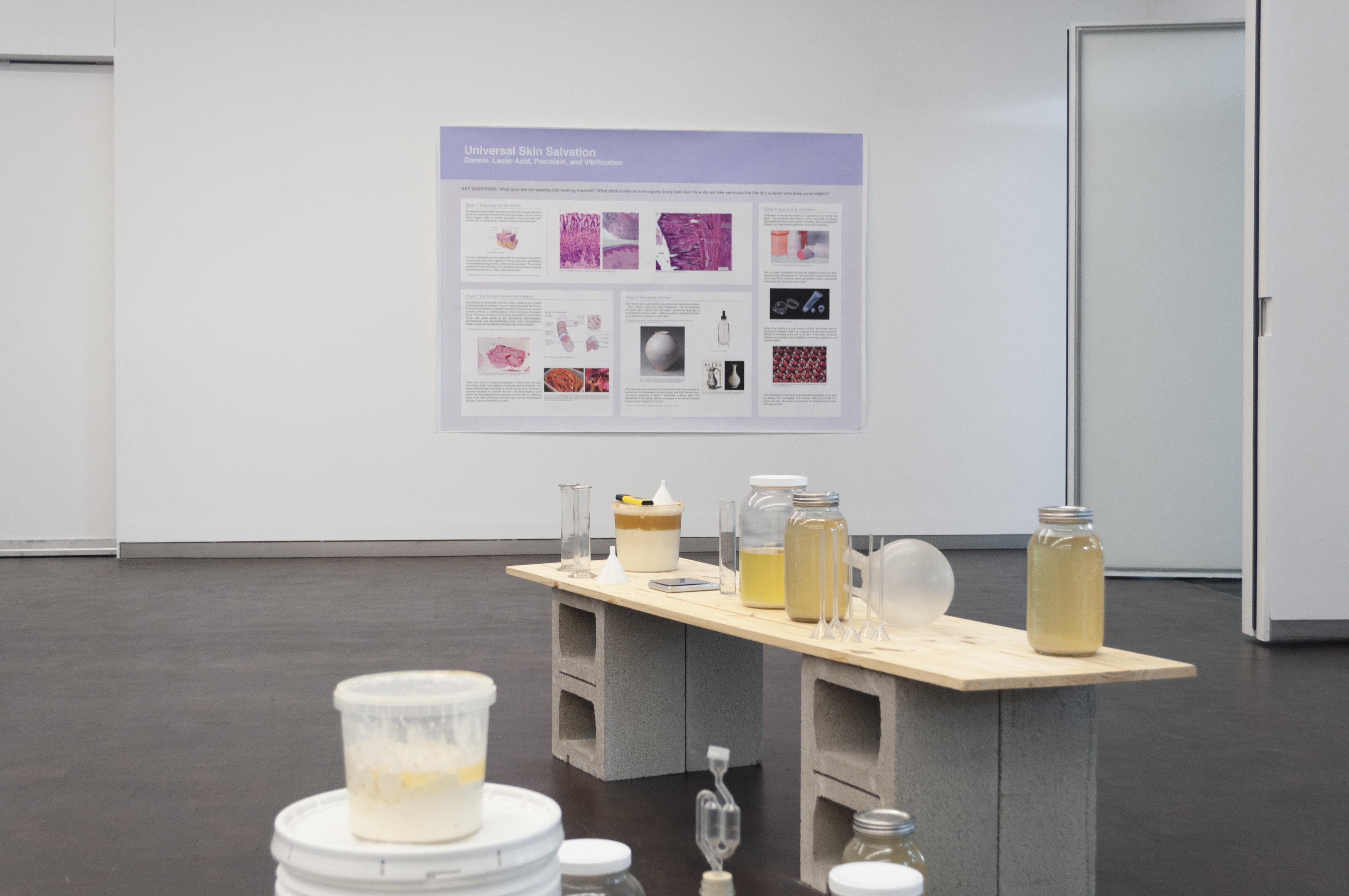
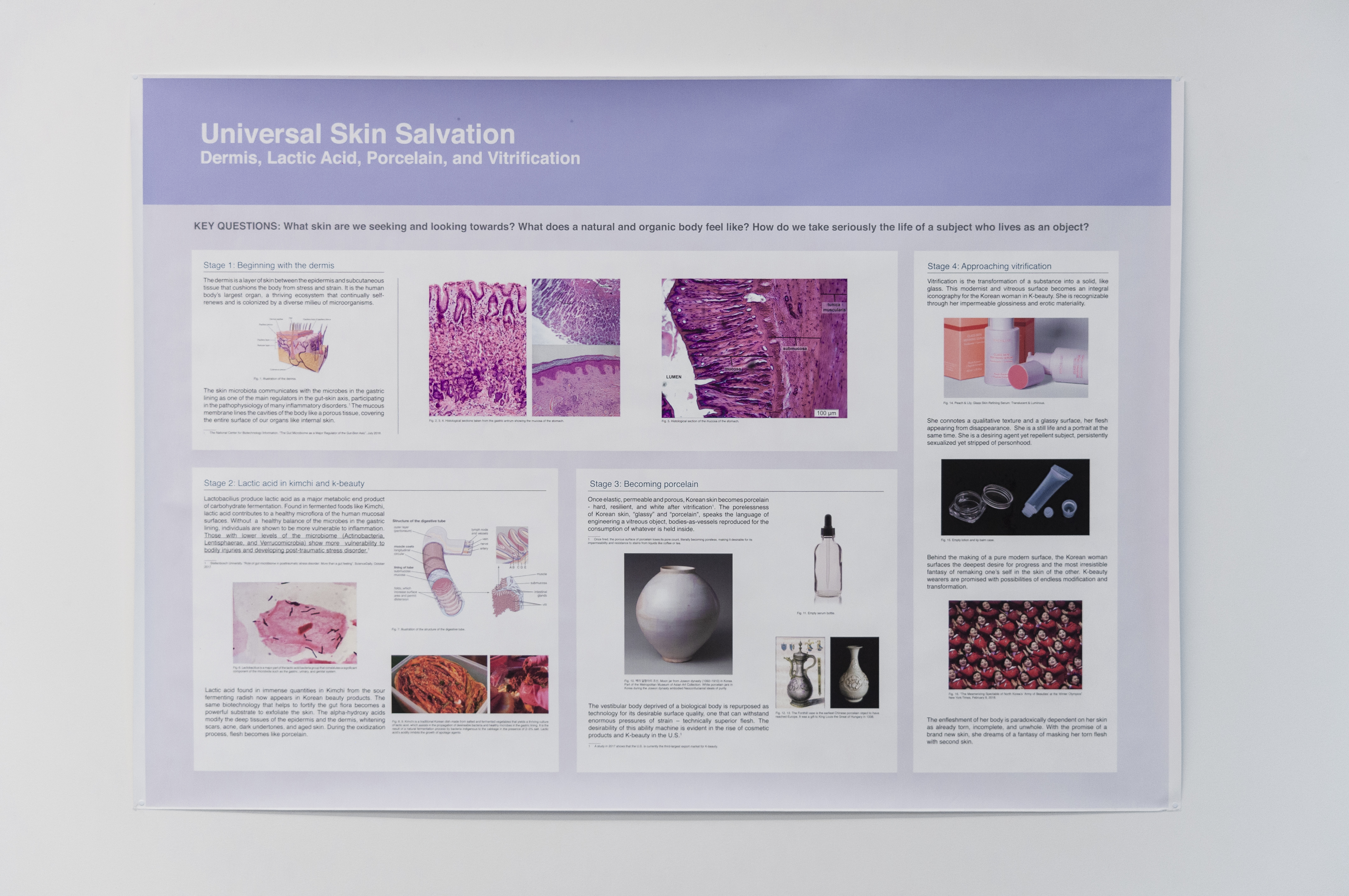 Universal Skin Salvation (Dermis, Lactic Acid, Porcelain, and Vitrification), 2018. Digital poster, 8 x 5 feet.
Universal Skin Salvation (Dermis, Lactic Acid, Porcelain, and Vitrification), 2018. Digital poster, 8 x 5 feet.
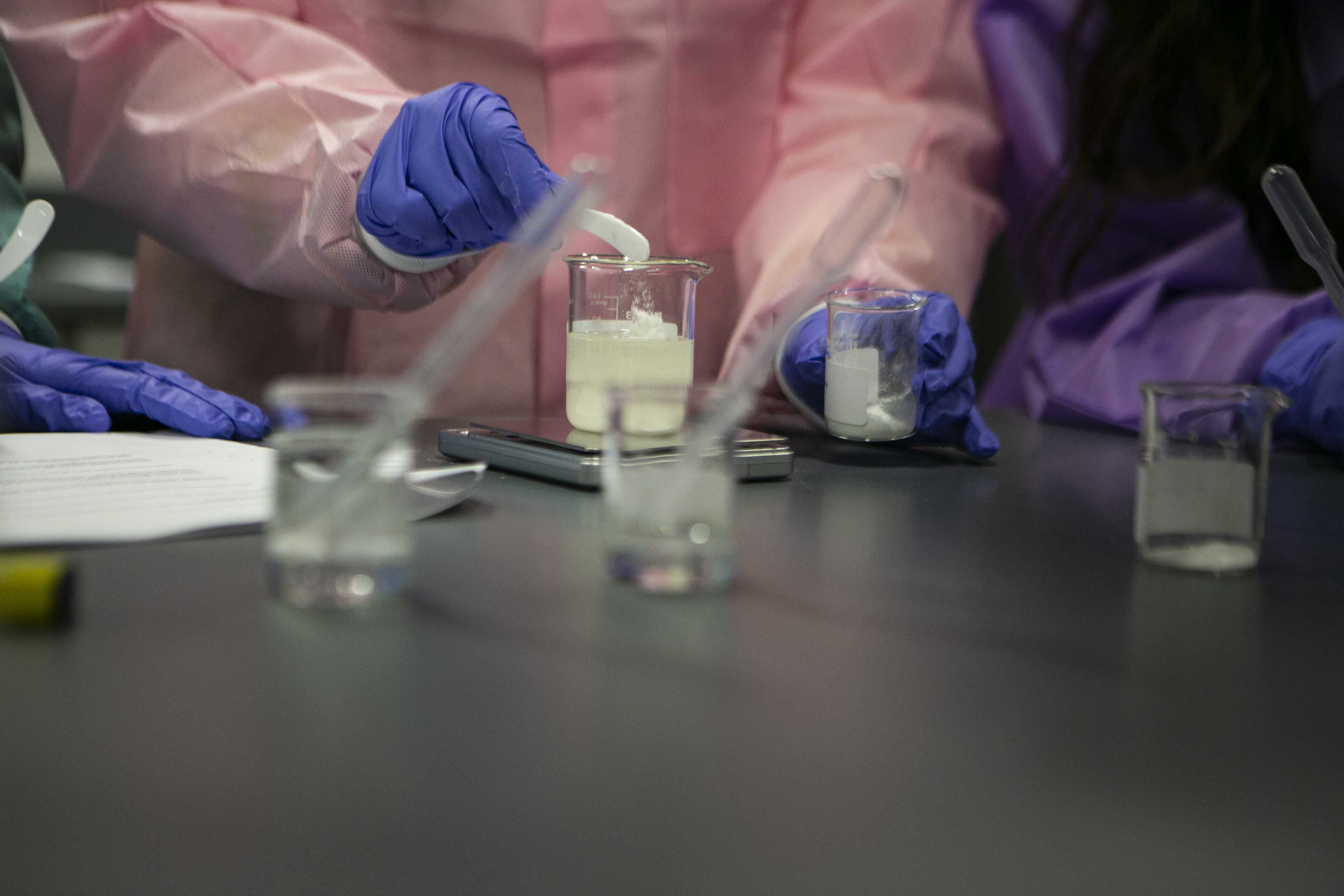 A hands-on workshop at Princeton University with students, faculty members, professors, and researchers as a part of their American Studies Program, Col(LAB): Strange Life: Beauty, Race, & War.
A hands-on workshop at Princeton University with students, faculty members, professors, and researchers as a part of their American Studies Program, Col(LAB): Strange Life: Beauty, Race, & War.
